1753 Born: Miguel Hidalgo y Costilla, Mexican priest and rebel leader (d. 1811)
Don Miguel Gregorio Antonio Francisco Ignacio Hidalgo-Costilla y Gallaga Mandarte Villaseñor (8 May 1753 – 30 July 1811), more commonly known as Don Miguel Hidalgo y Costilla or Miguel Hidalgo, was a New Spanish Roman Catholic priest, a leader of the Mexican War of Independence, and recognized as the Father of the Nation.
He was a professor at the Colegio de San Nicolás Obispo in Valladolid and was ousted in 1792. He served in a church in Colima and then in Dolores. After his arrival, he was shocked by the rich soil he had found. He tried to help the poor by showing them how to grow olives and grapes, but in New Spain (modern Mexico) growing these crops was discouraged or prohibited by the authorities so as to avoid competition with imports from Spain. In 1810 he gave the famous speech, "Cry of Dolores", calling upon the people to protect the interest of their King Fernando VII (held captive by Napoleon) by revolting against the European-born Spaniards who had overthrown the Spanish Viceroy.
He marched across Mexico and gathered an army of nearly 90,000 poor farmers and Mexican civilians who attacked and killed both Spanish Peninsulares and Criollo elites, even though Hidalgo's troops lacked training and were poorly armed. These troops ran into an army of 6,000 well-trained and armed Spanish troops; most of Hidalgo's troops fled or were killed at the Battle of Calderón Bridge. After the battle, Hidalgo and his remaining troops fled north, but Hidalgo was betrayed, captured and executed.
Mexican stamps depicting Miguel Hidalgo y Costilla
1794 – Branded a traitor during the Reign of Terror, French chemist Antoine Lavoisier, who was also a tax collector with the Ferme générale, is tried, convicted and guillotined in one day in Paris.
Antoine-Laurent de Lavoisier (26 August 1743 – 8 May 1794), also Antoine Lavoisier after the French Revolution, was a French nobleman and chemist who was central to the 18th-century chemical revolution and who had a large influence on both the history of chemistry and the history of biology. He is widely considered in popular literature as the "father of modern chemistry".
It is generally accepted that Lavoisier's great accomplishments in chemistry stem largely from his changing the science from a qualitative to a quantitative one. Lavoisier is most noted for his discovery of the role oxygen plays in combustion. He recognized and named oxygen (1778) and hydrogen (1783), and opposed the phlogiston theory. Lavoisier helped construct the metric system, wrote the first extensive list of elements, and helped to reform chemical nomenclature. He predicted the existence of silicon (1787) and was also the first to establish that sulfur was an element (1777) rather than a compound. He discovered that, although matter may change its form or shape, its mass always remains the same.
Lavoisier was a powerful member of a number of aristocratic councils, and an administrator of the Ferme générale. The Ferme générale was one of the most hated components of the Ancien Régime because of the profits it took at the expense of the state, the secrecy of the terms of its contracts, and the violence of its armed agents. All of these political and economic activities enabled him to fund his scientific research. At the height of the French Revolution, he was charged with tax fraud and selling adulterated tobacco, and was guillotined.
French stamp depicting Antoine Lavoisier
1828 Born: Henry Dunant, Swiss businessman and activist, co-founded the Red Cross, Nobel Prize laureate (d. 1910)
Henry Dunant (born Jean-Henri Dunant; 8 May 1828 – 30 October 1910), also known as Henri Dunant, was a Swiss humanitarian, businessman and social activist. He was the visionary, promoter and co-founder of the Red Cross.
During a business trip in 1859, Dunant was witness to the aftermath of the Battle of Solferino in modern-day Italy. He recorded his memories and experiences in the book A Memory of Solferino which inspired the creation of the International Committee of the Red Cross (ICRC) in 1863. The 1864 Geneva Convention was based on Dunant's idea for an independent organisation to care for wounded soldiers.
Dunant was the founder of the Swiss branch of the Young Men's Christian Association YMCA.
In 1901 he received the first Nobel Peace Prize together with Frédéric Passy, making Dunant the first Swiss Nobel laureate.
Stamps from various countries issued to commemorate Dunant and the Red Cross
1884 Born: Harry S. Truman, American colonel and politician, 33rd President of the United States (d. 1972)
Harry S. Truman (May 8, 1884 – December 26, 1972) was the 33rd president of the United States from 1945 to 1953, succeeding upon the death of Franklin D. Roosevelt after serving as vice president. He implemented the Marshall Plan to rebuild the economy of Western Europe, and established the Truman Doctrine and NATO.
Truman grew up in Independence, Missouri, and during World War I was sent to France as a captain in the Field Artillery. Returning home, he opened a haberdashery in Kansas City, Missouri and was later elected as a Jackson County official in 1922. Truman was elected to the United States Senate from Missouri in 1934 and gained national prominence as chairman of the Truman Committee aimed at reducing waste and inefficiency in wartime contracts. Soon after succeeding to the presidency he authorized the first and only use of nuclear weapons in war. Truman's administration engaged in an internationalist foreign policy and renounced isolationism. He rallied his New Deal coalition during the 1948 presidential election and won a surprise victory that secured his own presidential term.
Truman oversaw the Berlin Airlift of 1948. When North Korea invaded South Korea in 1950, he gained United Nations approval to intervene in what became known as the Korean War. On domestic issues, bills endorsed by Truman faced opposition from a conservative Congress, but his administration successfully guided the U.S. economy through the post-war economic challenges. In 1948 he submitted the first comprehensive civil rights legislation and issued Executive Orders to start racial integration in the military and federal agencies.
Corruption in the Truman administration became a central campaign issue in the 1952 presidential election. After Republican Dwight D. Eisenhower's electoral victory against Democrat Adlai Stevenson II, Truman went into a financially-difficult retirement, marked by the founding of his presidential library and the publication of his memoirs. When he left office, Truman's presidency was criticized, but scholars rehabilitated his image in the 1960s and he is highly ranked by scholars.
US stamps depicting Truman
1933 – Mohandas Gandhi begins a 21-day fast of self-purification and launched a one-year campaign to help the Harijan movement.
Mohandas Karamchand Gandhi (2 October 1869 – 30 January 1948) was an Indian lawyer, anti-colonial nationalist, and political ethicist, who employed nonviolent resistance to lead the successful campaign for India's independence from British Rule, and in turn inspire movements for civil rights and freedom across the world. The honorific Mahātmā (Sanskrit: "great-souled", "venerable"), first applied to him in 1914 in South Africa, is now used throughout the world.
Born and raised in a Hindu family in coastal Gujarat, western India, Gandhi was trained in law at the Inner Temple, London, and called to the bar at age 22 in June 1891. After two uncertain years in India, where he was unable to start a successful law practice, he moved to South Africa in 1893 to represent an Indian merchant in a lawsuit. He went on to stay for 21 years. It was in South Africa that Gandhi raised a family, and first employed nonviolent resistance in a campaign for civil rights. In 1915, aged 45, he returned to India. He set about organizing peasants, farmers, and urban laborers to protest against excessive land-tax and discrimination. Assuming leadership of the Indian National Congress in 1921, Gandhi led nationwide campaigns for easing poverty, expanding women's rights, building religious and ethnic amity, ending untouchability, and above all for achieving Swaraj or self-rule.
The same year Gandhi adopted the Indian loincloth, or short dhoti and, in the winter, a shawl, both woven with yarn hand-spun on a traditional Indian spinning wheel, or charkha, as a mark of identification with India's rural poor. Thereafter, he lived modestly in a self-sufficient residential community, ate simple vegetarian food, and undertook long fasts as a means of self-purification and political protest. Bringing anti-colonial nationalism to the common Indians, Gandhi led them in challenging the British-imposed salt tax with the 400 km (250 mi) Dandi Salt March in 1930, and later in calling for the British to Quit India in 1942. He was imprisoned for many years, upon many occasions, in both South Africa and India.
Gandhi's vision of an independent India based on religious pluralism was challenged in the early 1940s by a new Muslim nationalism which was demanding a separate Muslim homeland carved out of India. In August 1947, Britain granted independence, but the British Indian Empire was partitioned into two dominions, a Hindu-majority India and Muslim-majority Pakistan. As many displaced Hindus, Muslims, and Sikhs made their way to their new lands, religious violence broke out, especially in the Punjab and Bengal. Eschewing the official celebration of independence in Delhi, Gandhi visited the affected areas, attempting to provide solace. In the months following, he undertook several fasts unto death to stop religious violence. The last of these, undertaken on 12 January 1948 when he was 78, also had the indirect goal of pressuring India to pay out some cash assets owed to Pakistan. Some Indians thought Gandhi was too accommodating. Among them was Nathuram Godse, a Hindu nationalist, who assassinated Gandhi on 30 January 1948 by firing three bullets into his chest
Stamps from various countries depicting Gandhi

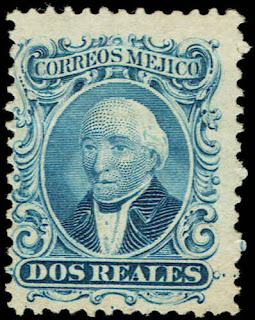

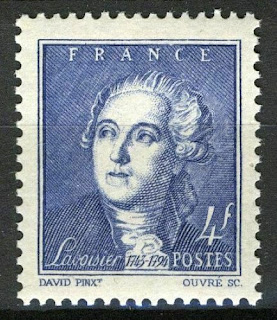

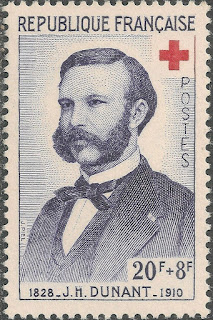

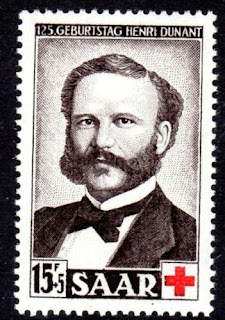

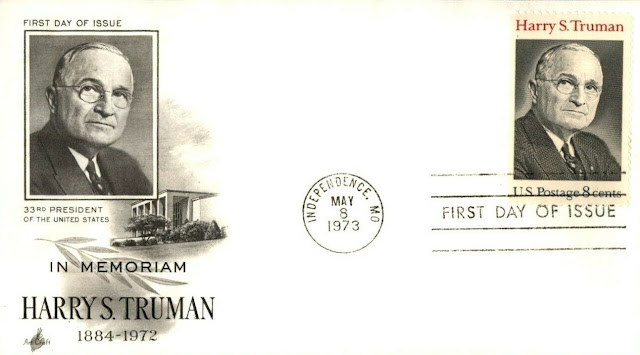


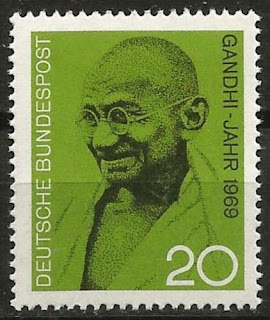
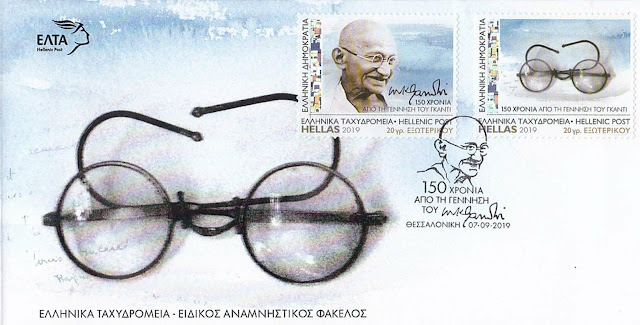
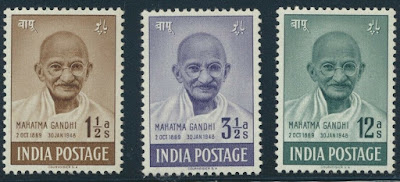
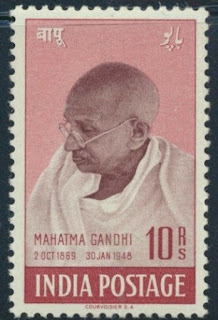


No comments:
Post a Comment